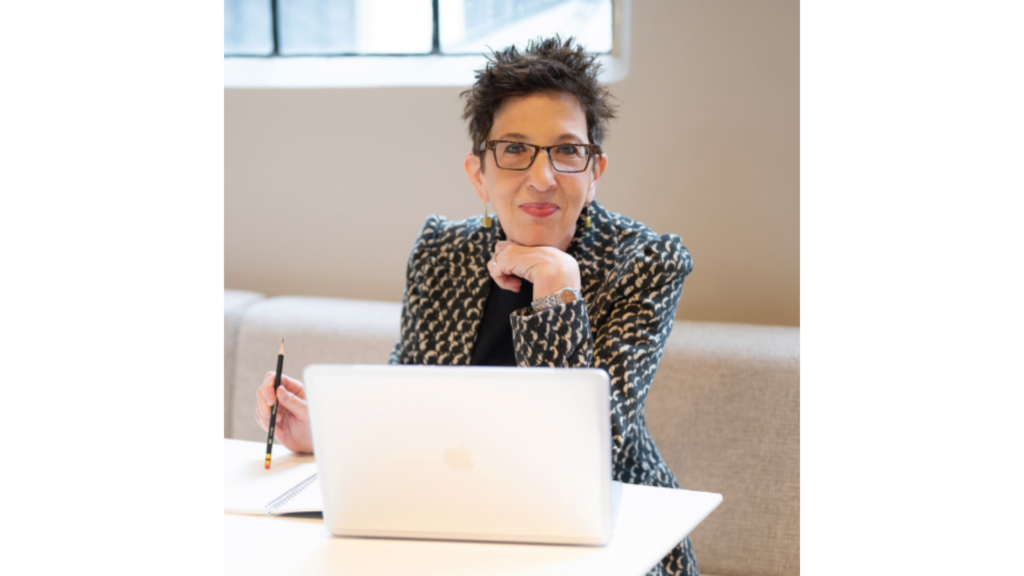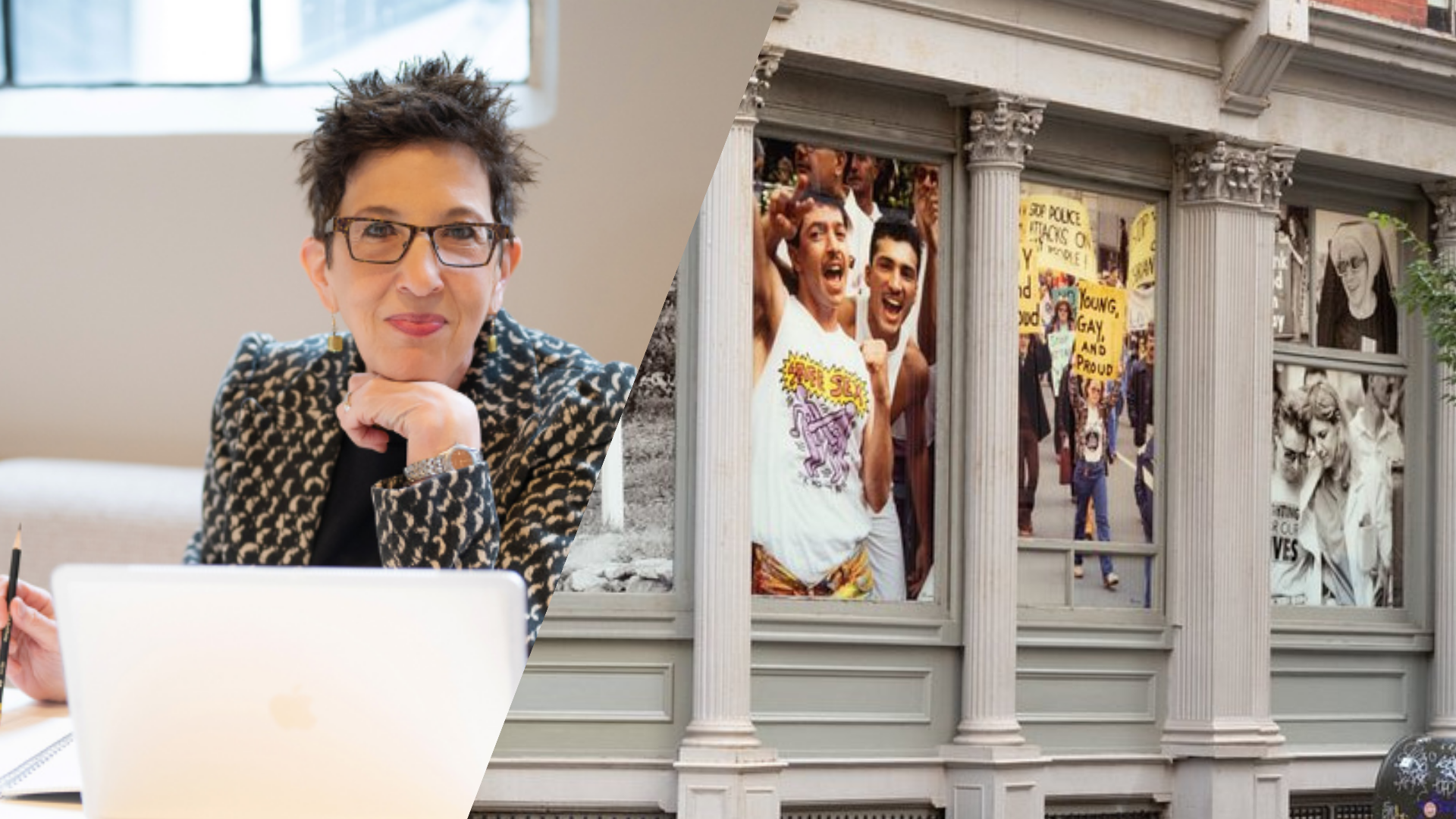At Lindauer, our consultants are deeply committed to serving the nonprofit sector, volunteering their time, experience, and expertise to a range of institutions as board members.
Lindauer Senior Consultant Diane Felicio embodies this commitment in her extensive board work, which includes the Leslie-Lohman Museum of Art, the only dedicated LGBTQIA+ art museum in the world with a mission to exhibit and preserve LGBTQIA+ art and foster the artists who create it.
Diane recently became President of the Board of the Leslie-Lohman Museum. She spoke with us about her history with the institution and how her experience on the board helps inform her work as a Lindauer consultant partnering with other mission-driven organizations to recruit leaders who will advance their causes.
Can you begin by telling us about your involvement with the Leslie-Lohman Museum of Art?
I’ve always had a passion for art and a history of holding board positions, so when the opportunity to join the board of the Leslie-Lohman came, it felt like a perfect fit, combining my love for art with leadership. I’ve been on the board since 2020 and during that time served on committees, chaired the Governance Committee, and was elected vice president.
In March 2024, I was voted in as president, which has been exciting for me personally and professionally. My involvement began through a friend and former board member who mentioned the museum was looking to expand in size and scope. After several conversations with the executive director and board leadership at the time, I received a formal invitation to join and was voted in by the full board.
What drew you to the Leslie-Lohman Museum of Art specifically?
I remember noticing art from an early age; that evolved, especially during college, into a true passion. Ultimately, I started to collect and to build relationships with artists and with galleries. The opportunity to combine this passion with meaningful leadership, and my equally fervent commitment to the LGBTQIA+ community, is incredibly fulfilling. Seeing the impact of the museum’s work locally, nationally, and internationally, and knowing that we are preserving and celebrating LGBTQIA+ art, culture, and identity feeds a real sense of purpose for me.
What is particularly exciting for you about stepping into the role of president at this time?
The museum holds a remarkable collection of more than 25,000 works (and growing!) by LGBTQIA+ artists. Its history dates to the personal collection of Charles Leslie and Fritz Lohman, who opened it to the public in 1969 in the wake of Stonewall. Over time, the collection has expanded exponentially and reflects the full spectrum of LGBTQIA+ diversity.
In the press release announcing the museum’s new board leadership, I said that the Leslie-Lohman Museum of Art is an unflinching steward of LGBTQIA+ history, and a force amplifying the creativity, imagery, and stories fueling our future. That’s what excites me! I used the word “unflinching” on purpose, because as a museum that exhibits, collects, and preserves art by LGBTQIA+ artists, we are mindful of the threats that have always been part of our lives and communities. Knowing this intensifies the board’s commitment and dedication to the museum and the collection.
Thinking big-picture and long-term, the evolving purpose of the museum raises important questions for the board about our identity and role in broader social justice issues. How do we use our institutional voice, and when do we decide to use it?
Practically speaking, it’s expensive to run a museum. As an institution, we are essentially a caretaker of art, and doing it right requires significant resources to grow and preserve the collection and to create opportunities for audiences to engage with it. As board members, we have the responsibility and privilege to make the kind of big-picture decisions about the museum’s priorities and values that, in turn, determine where resources will go.
Can you share how your experience on boards has influenced your approach to executive recruitment?
Serving on boards has certainly informed my approach to executive recruitment. When I partner with nonprofits as an executive recruiter, I draw from my board experience, understanding what search committee members, who are often board members themselves, are grappling with, the variables they’re weighing, and so on. Many have expressed their appreciation, because I can identify from personal experience with their charge and with the opportunities and challenges that come with the important role they play in selecting their next organizational leaders.
A perfect example: during the COVID-19 pandemic, we launched a search for the next executive director of the Leslie-Lohman Museum of Art (I was on the search committee and the search was conducted fully remotely). The circumstances of the moment required the board and the museum to adapt quickly to unusual circumstances. Like many organizations at the time, COVID-19 gave new meaning to the nature of flexible leadership, how best to manage expectations, and what we wanted and needed from the search process and our recruitment firm. The fact that I can draw on this experience now as I conduct searches has been invaluable.
What are the key challenges you face in board recruitment, and how are you addressing them?
One of our main challenges is finding board members who not only have the necessary skills and experience but also know the art market, either as a collector, artist, and/or someone who has worked with museums or arts organizations in some way. While not required of all board members, we do want a critical mass of folks who understand what it means to run an arts organization now and plan appropriately for the future.
Any final thoughts or advice for organizations looking for board members?
Have conversations about purpose: what is it that we are here to do? Mission and values are critical, and often get top billing, but I have found that clarity about purpose is equally important. Covering all these bases allows potential board members to see clearly from the outset if they align with an organization’s practical and pie -in-the-sky needs and goals.

With over 25 years of experience in senior leadership roles, Diane Felicio has served as a strategist, executive director, operations expert, fundraiser, crisis manager, and trusted advisor and relationship builder across a broad range of institutions in the non-profit and related sectors. Within these positions, Diane has been directly involved with recruitment activities across countless roles including college and university faculty/deans/provosts/presidents, development professionals, and operations staff/ directors/executive directors, as well as board recruitment and governance.

